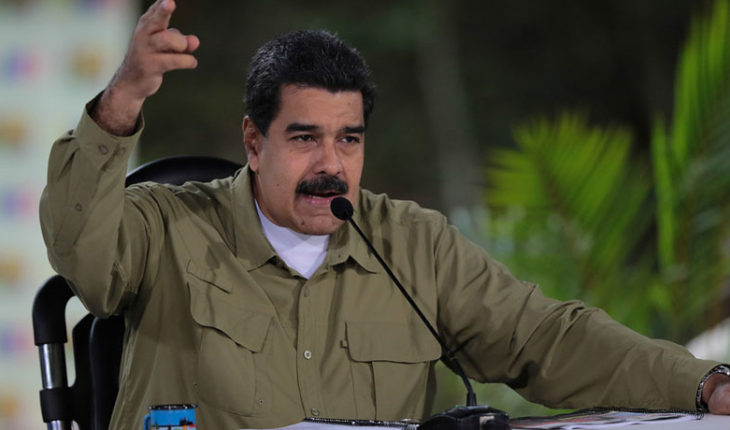President Nicolas Maduro ordered to reopen on Friday the borders of Venezuela with Brazil and Aruba, after that in February ordered the closure of the land and maritime borders to block an attempt by the opposition to deliver humanitarian aid International. The Venezuelan Minister of industry, Tareck El Aissami, pointed out that the borders with Colombia, which is the most frequently crossed, and two other Dutch Caribbean islands remain closed because their leaders have not sufficiently ensured that the sovereignty of Venezuela will be respected. The border with Colombia remains officially sealed, but thousands of Venezuelans continue crossing illegal dirt roads known as “trails” to flee the country’s crisis. The Socialist government of the South American nation ordered the closure of the borders with Aruba, Bonaire, Curaçao, Brazil and Colombia three months ago, when the opposition tried to deliver food and medical supplies. The aid was largely provided by the United States, a key ally of opposition leader Juan Guaidó, who is recognized by more than 50 nations as the legitimate president of Venezuela. Mature dismissed aid as a violation of the sovereignty of Venezuela and A crudely disguised attempt backed by the United States to expel him from power. Most of the assistance was stored on the other side of the border with Colombia, while in Brazil and the Caribbean there were smaller amounts. Opposition leaders tried to bring aid across land borders on trucks, but were blocked by state security forces. The Aissami said the mature government held talks with high-level officials in Aruba And Brazil and said that they had reached agreements necessary to ensure that events such as those on 23 February are not repeated. He said that the leader of Aruba in particular had been emphatic in non-interference in Venezuela’s internal affairs. He said that until the other two Dutch islands in the Caribbean and Colombia ensure that the Venezuelan authorities will cease all “hostility” and attempts to To destabilize the mature government, those borders will remain closed. Venezuela’s relations with its neighbors have become increasingly thorny as many leaders in the region have supported Guaidó in their attempt to assume the presidency, form a transitional government and expel the power from mature. The border closure has Tenid Or a particularly strong impact on the tens of thousands of Venezuelans who normally cross to Colombia every day in search of food, medicine or a new life out of the nation in difficulties. Many of those who cross the country illegally through the “trails” are preyed on by armed criminal groups that are charged for passing by and often robbed or assaulted when they try to return to the country. Venezuela is in the midst of a power struggle between Maduro and Guaidó, who declared interim president of the nation in January. Guaidó has mobilized thousands of Venezuelans frustrated in the streets, but has failed to win the main supporters of Maduro. An attempt to incite a military rebellion last week failed quickly. Edgar Zambrano, Vice-President of the National Assembly, controlled by the opposition, was arrested this week and a Venezuelan court ordered Friday to be imprisoned in a military facility. He and nine other opposition leaders are being investigated in connection with the failed military insurrection. Several have taken refuge in foreign embassies in Caracas. The arrest of Zambrano has aroused fears of a broader repression, at a time when opposition leaders make renewed calls for their supporters to protest again on Saturday.
translated from Spanish: Venezuela reopens its borders with Brazil and Aruba
May 10, 2019 |





